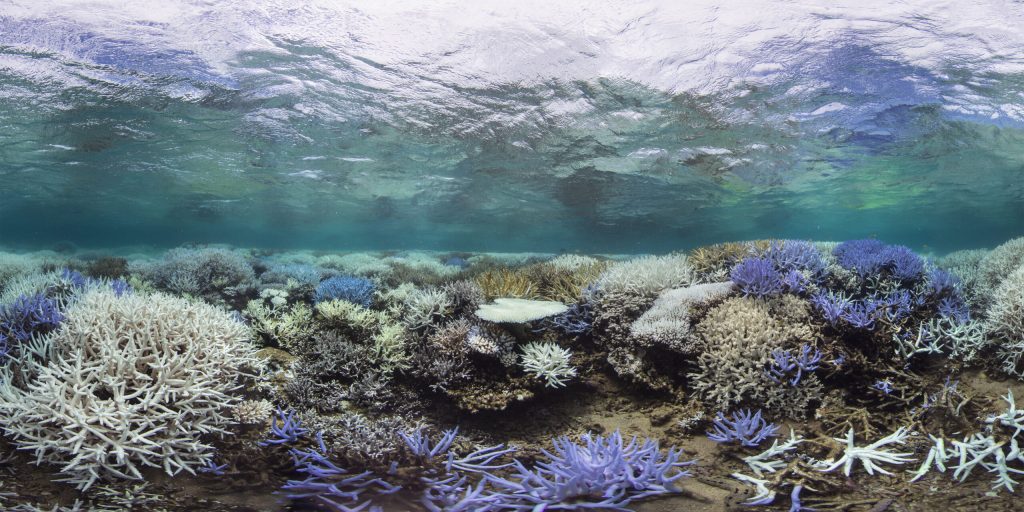Context:
Lakshadweep is most severely affected by coral bleaching on India’s coastline.
Key Highlights

Extent of Bleaching
- Lakshadweep, a Union Territory of India composed of 36 islands, has experienced severe coral bleaching and it has been confirmed by scientists.
- The ongoing global coral bleaching event (GCBE4), has proven to be the most severe on record, surpassing previous events like GCBE3.
- According to US-based National Oceanic and Atmospheric Administration (NOAA) reports over 70.7% of coral reefs worldwide have faced bleaching-level heat stress since January 2023.
Local Observations
- Scientists at Lakshadweep’s Department of Science & Technology, reported that this year’s bleaching has impacted 84.6% of the coral reefs.
- This marks one of the most severe events compared to those in 1998, 2010, and 2020.
Impact on Coral Species
- Significant impacts were noted on coral species such as Porites cylindrical, Porites lobata and Montipora foliosa.
- Even resilient species like Acropora digitifera and Pocillopora grandis showed signs of bleaching, highlighting the severity of the current event.
What is a coral reef?
- Coral reefs are large underwater structures composed of the skeletons of colonial marine invertebrates (Polyps) called coral.
- Coral reefs in India are found in a lot of areas including the Gulf of Kutch, Gulf of Mannar, Palk Bay, Andaman & Nicobar and Lakshadweep Islands.
What is Coral Bleaching?
- Coral bleaching occurs when reefs lose their color and turn white due to the expulsion or death of zooxanthellae, the algae that provide nutrients and vibrant colors to corals (Polyps).
- When corals become stressed by climate change, rising water temperatures, pollution, changes in light levels, and sedimentation, they expel zooxanthellae, leading to bleaching
Role of Coral Reefs
- Coral reefs in Lakshadweep are vital for supporting diverse marine life, protecting shorelines from erosion and storms, providing livelihoods through fishing, and attracting tourists.
Recovery and Outlook
- While a slight reduction in water temperatures with the onset of the monsoon has offered temporary relief but it emphasizes that long-term coral recovery remains uncertain.
- Continued cooler conditions and the absence of further stressors (which increase temperatures) are crucial for their sustained health.
Measures to conserve Coral reefs
- Marine Protected area
- Coral Reef Alliance (CORAL):
- International Coral Reef Initiative
- Coral Reef Restoration
- International Agreements: The Paris Agreement aims to limit global warming to well below 2°C, ideally 1.5°C, compared to pre-industrial levels.

